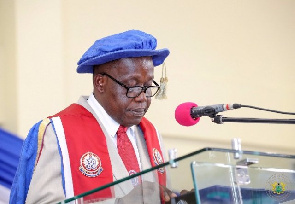Vice Chancellors to be jailed for running unaccredited courses – GTEC

• GTEC has cautioned tertiary schools against running unaccredited courses
• The penalties include either paying a fine of not more than GH¢240,000
• Rector of the institution could be jailed for up to 20 years
The Commission of the Ghana Tertiary Education (GTEC) has warned vice-chancellors of universities against running unaccredited programmes.
The Commissioner of GTEC Professor Mohammed Salifu made this known in an interview with the Daily Graphic.
According to him, the Education Regulatory Body Act, 2020 (Act 1023) makes it is an offence for a tertiary institution to advertise or run a programme for which it has no accreditation.
The penalties include either paying a fine of not more than GH¢240,000 or the vice-chancellor (VC)/rector of the institution concerned going to prison for up to 20 years or both.
He explained that the new act has scrapped the affiliation policy and requires all existing private university colleges currently under affiliation to expedite action towards chartering.
Prof. Salifu, therefore, advised V-Cs “to go and come clean” by making available the programmes being run by their institutions, especially those not accredited, for possible rectification “to avoid the avoidable”.
“They must bring all the programmes they run for us to see if we can give them amnesty so that they go and sin no more”.
He added that the offences and penalties also included, “a person who fails to register an institution, as required under this act, or refuses to comply with a request for information by or on behalf of the commission or refuses to provide information, that is an offence and is liable, on summary conviction, to a fine of not less than 10,000 penalty units and not more than 20,000 penalty units or to a term of imprisonment of not less than 15 years and not more than 20 years or to both.”
The commissioner said the legal framework and the punishments were part of strategies to ensure that with the phasing out of the mentorship policy regarding newly established private universities, standards were not compromised.
Source: www.ghanaweb.com






